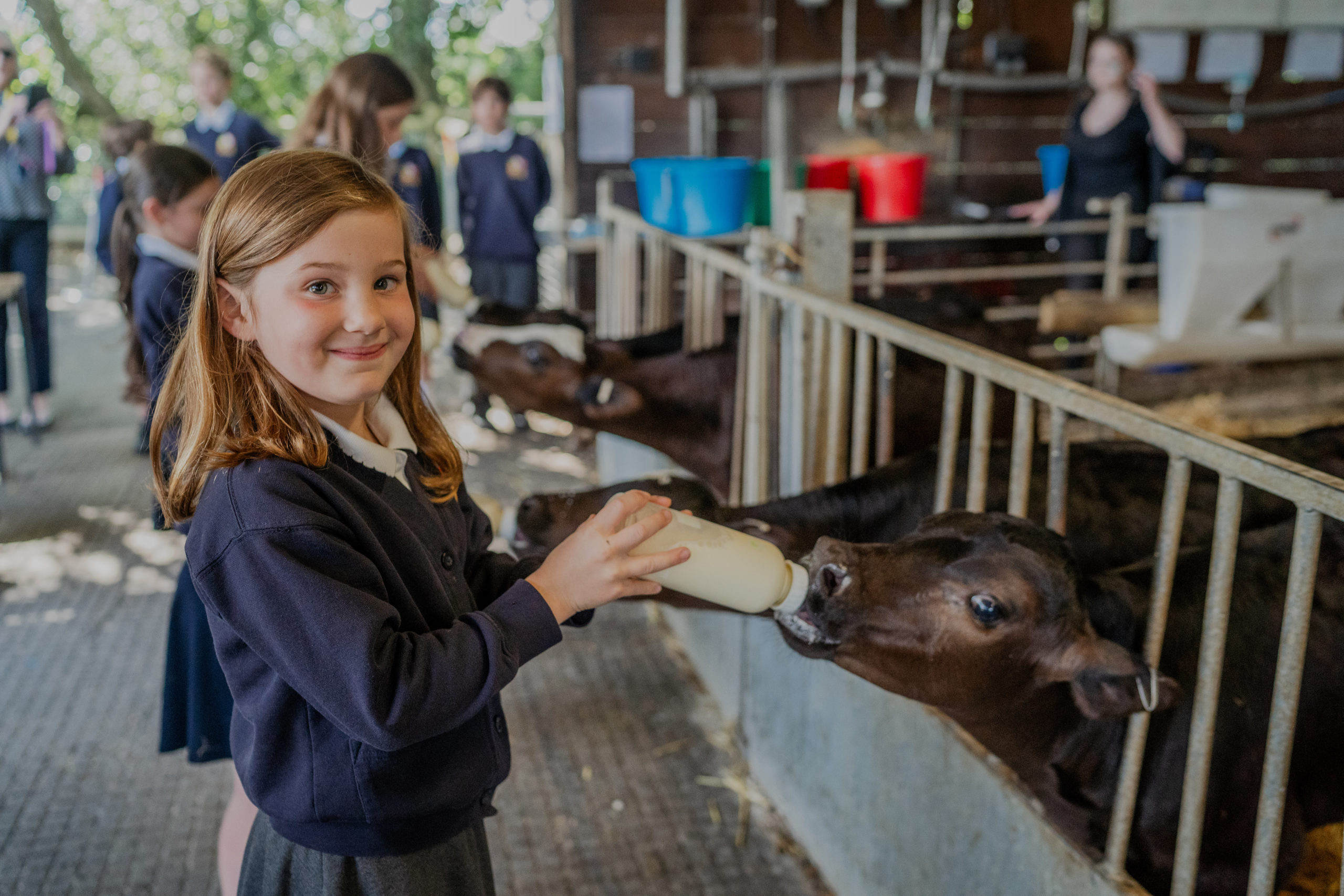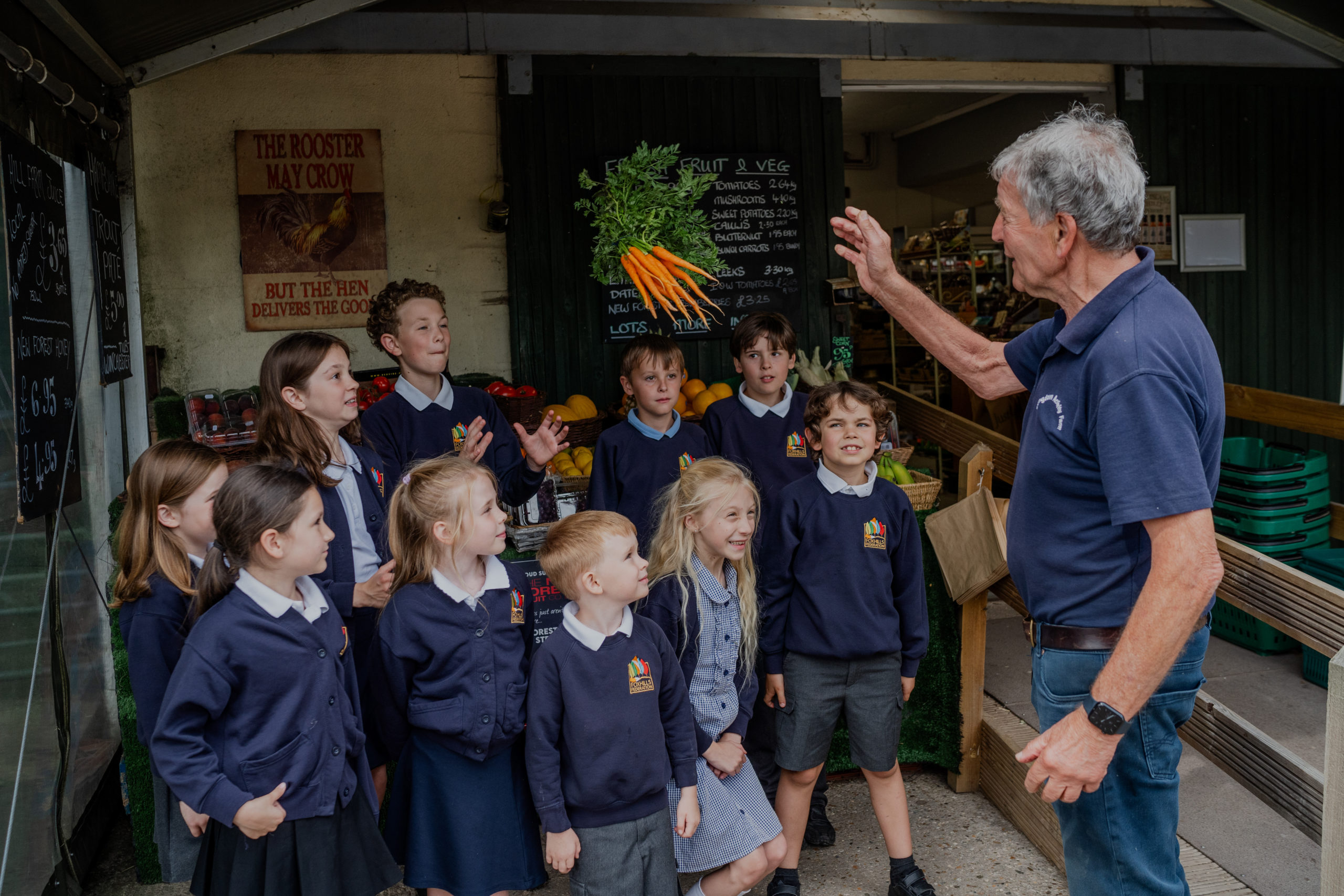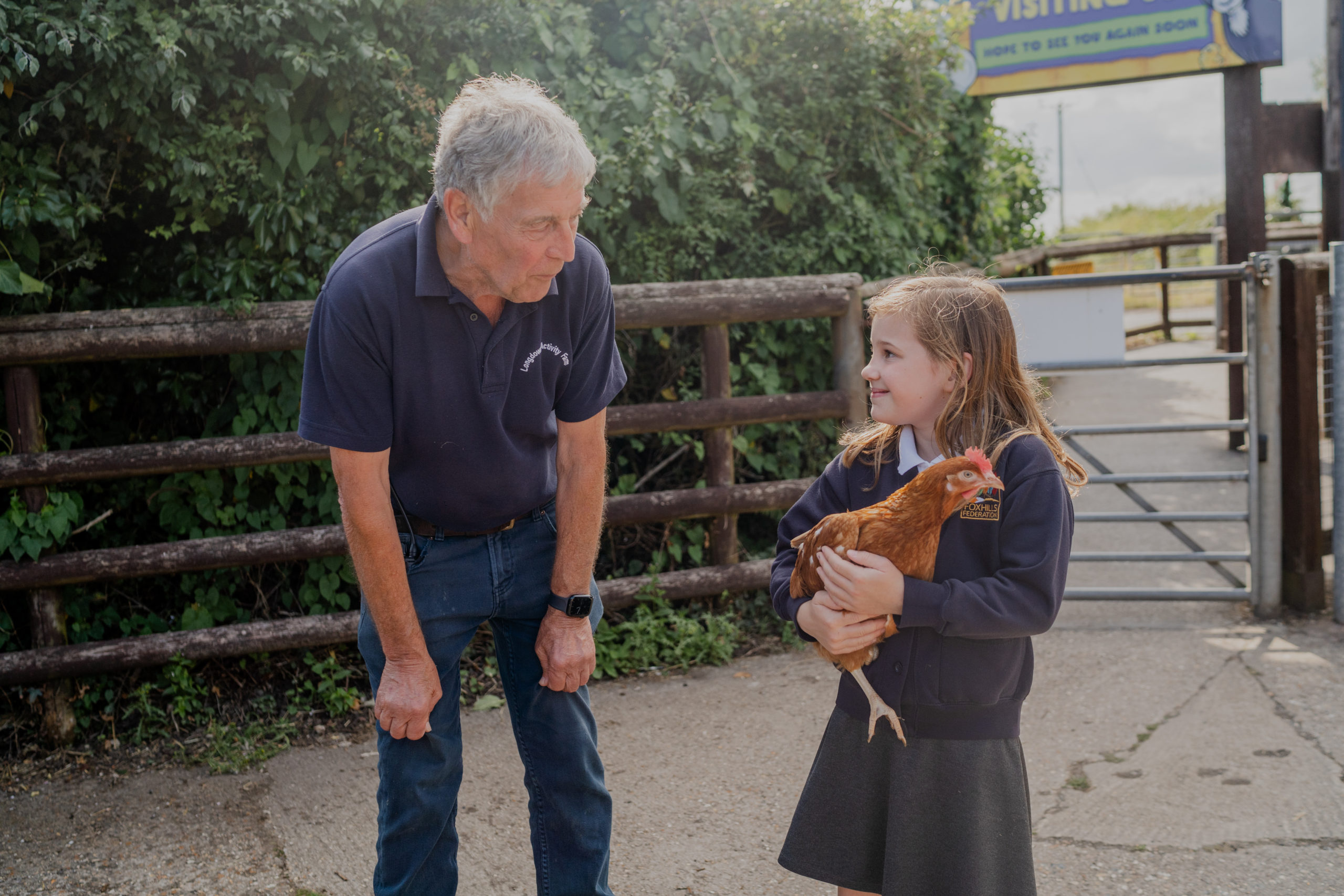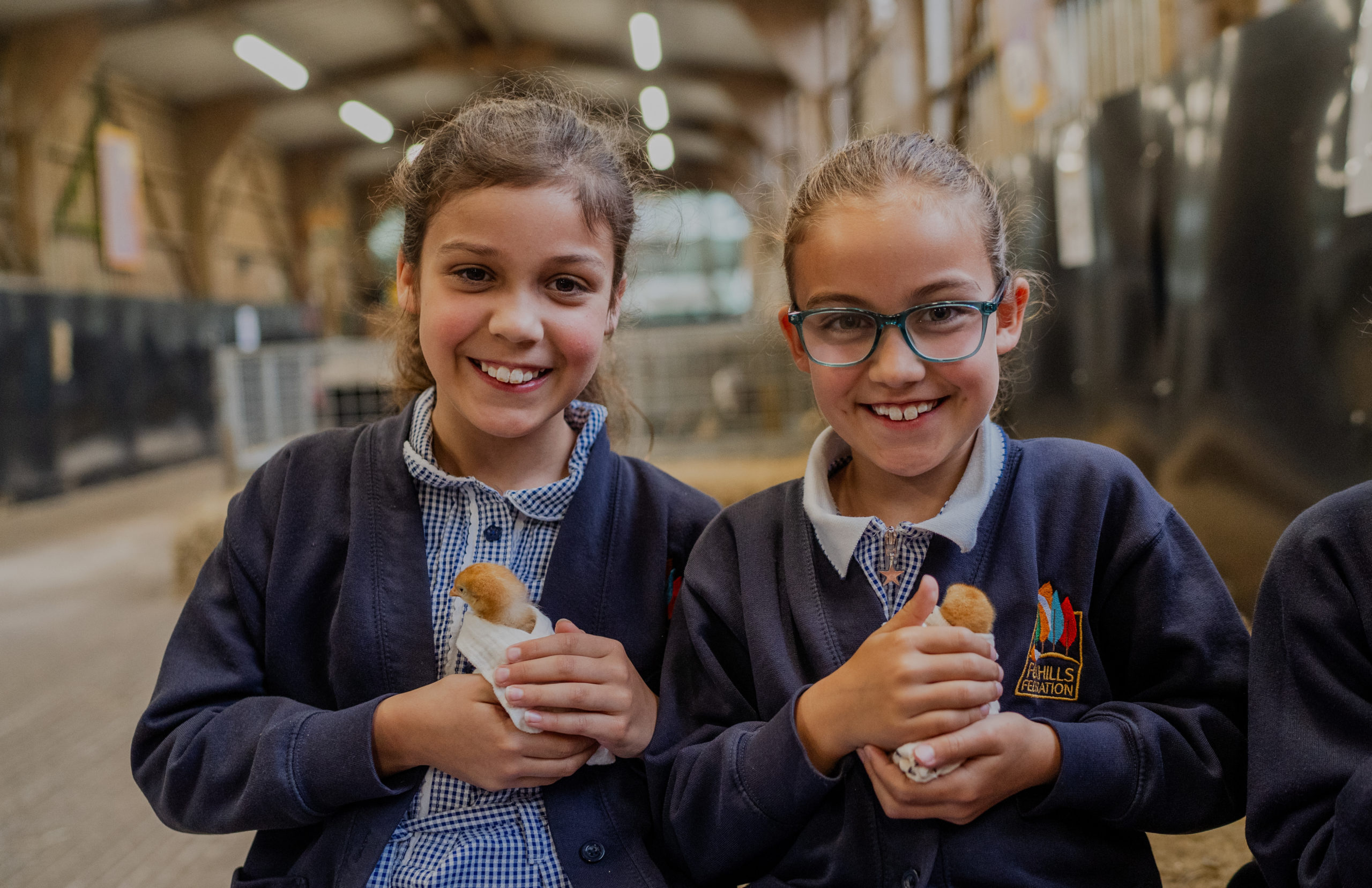Teachers
Our guided tour is tailored to suit the age and ability of visiting children. Topics can be related to any relevant Key Stages of the National Curriculum. As a venue, Longdown Activity Farm has a huge scope to fit in with a wide range of teaching requirements. Just as importantly, learning on the farm is hands-on, safe and fun!
Teachers are encouraged to telephone or make a free preliminary visit prior to the tour to discuss their requirements and to make a Health and Safety Assessment.
Longdown Activity Farm has an excellent Health and Safety record and adheres to the latest advice from HSE, DEFRA and New Forest District Council Environmental Health Department at all times. To complement our plentiful hand-washing facilities, we have a hand scanner called ‘The Germinator’ which checks that hands have been washed adequately and makes hand hygiene fun for the children.
During the tour of Longdown Activity Farm, children will have the opportunity to participate in a wide range of hands-on experiences with a variety of animals including cows, horses, chickens and goats. Some baby animals will be handled and kid goats and/or calves can be bottle-fed. Some adult animals can also be fed by the children. Close interaction with animals encourages observation of animal behaviour, and encourages conversation and learning about similarities and differences of the animals that live on the farm.
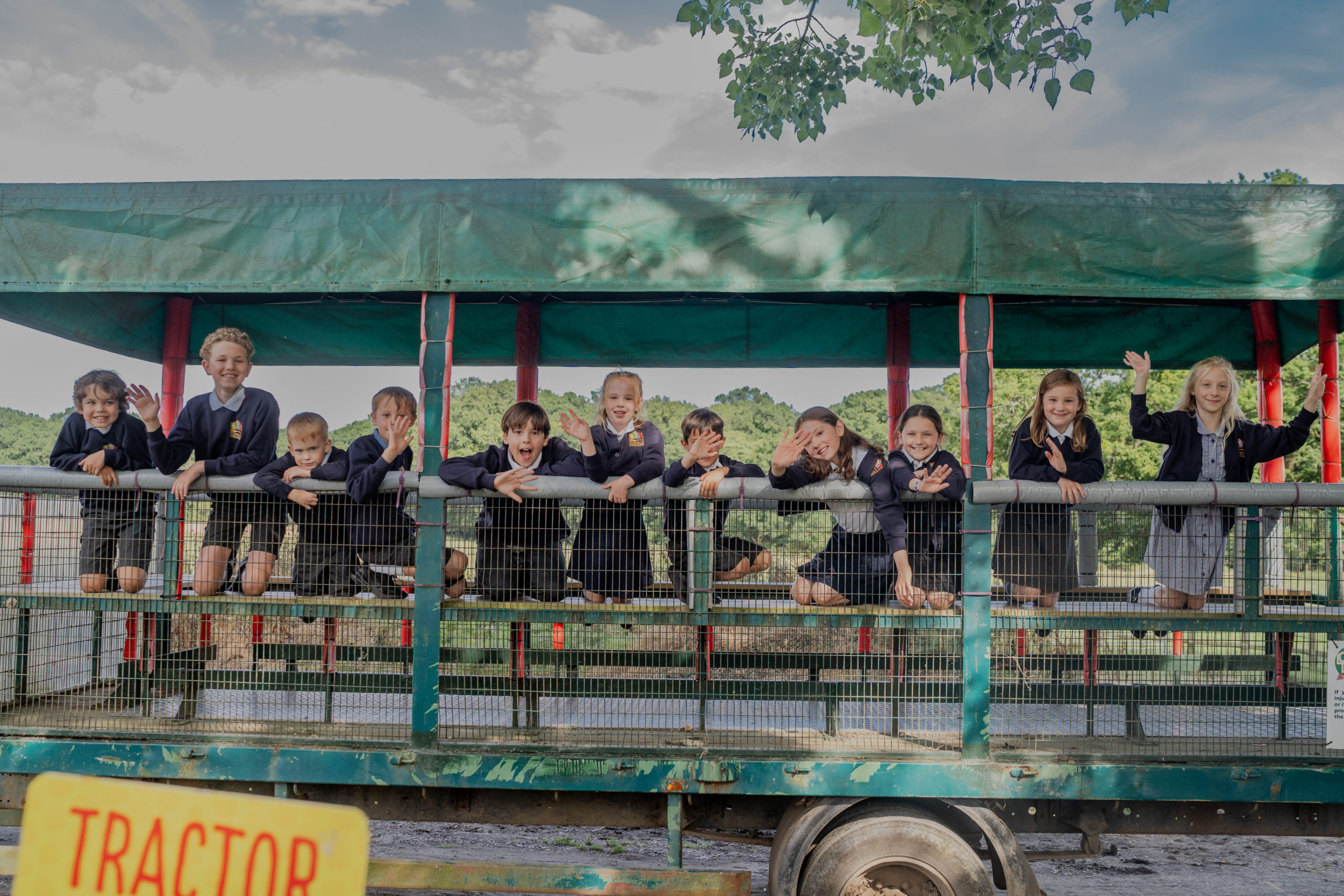
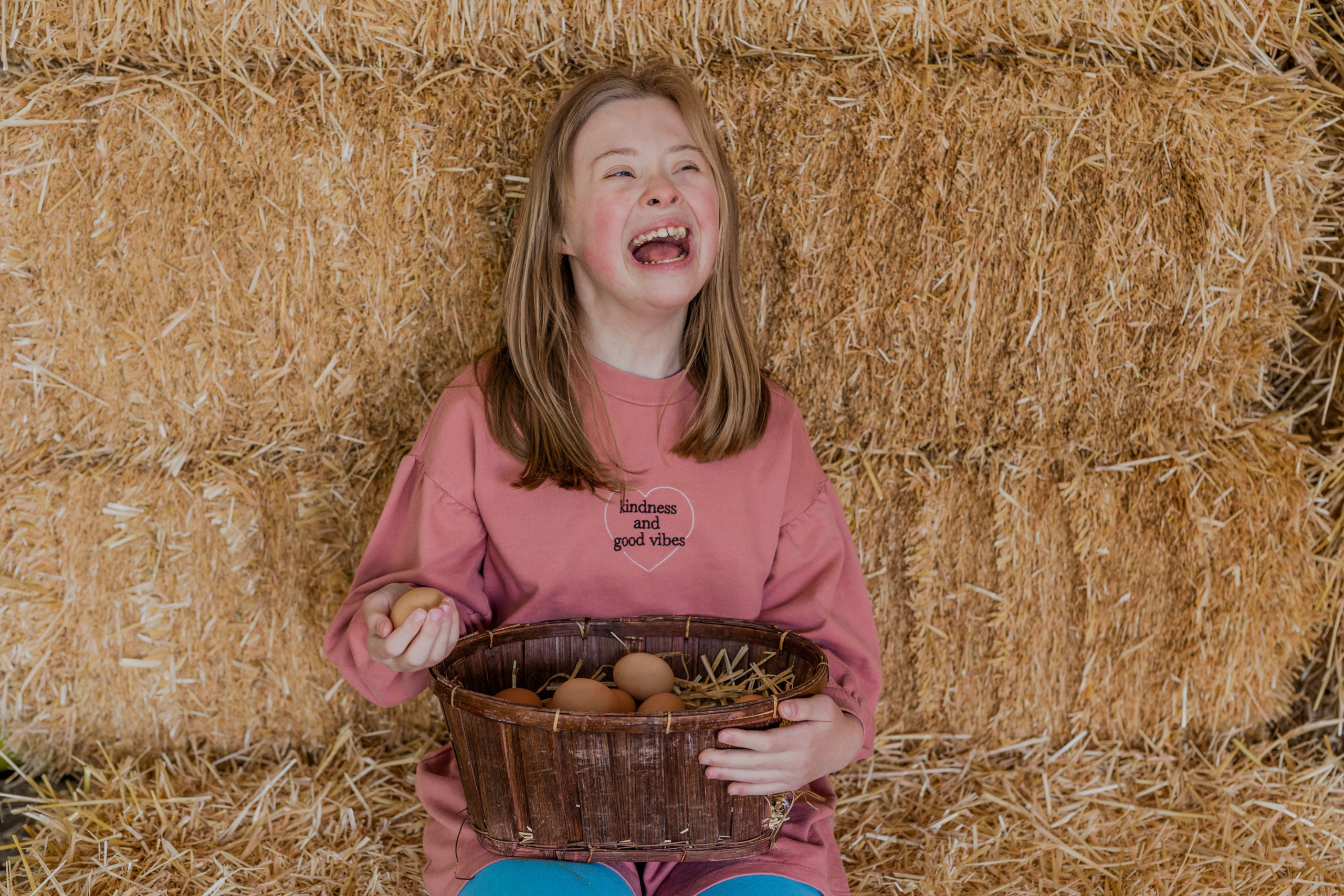
Topics Covered in the Farm Tour
1. When Studying the Cows and Calves:
Key Stage 1: Science: Life processes and living things.
1b: Animals move, feed, grow, use their senses and reproduce.
2b: Animals need food and water to stay alive.
2f: Animals produce offspring which grow to adults.
4b: Living things can be grouped according to similarities and differences.
Key Stage 2: Science, Life processes and living things.
1a: There are life processes including nutrition, movement, growth and reproduction, common to animals.
2e: Animals have skeletons and muscles to support and protect their bodies and help them move.
5b: Animals can be found in different habitats.
5c: Animals are suited to their environment, eg. observation of feet, teeth, eyes and coats, etc.
5f: Micro-organisms exist, some beneficial and some harmful.
2. Holding the Baby Chicks.
Key Stage 1: Science: Programme of Study.
2e: Consider how to treat living things with care and sensitivity.
Key Stage 2: Science: Programme of Study.
5a: Consider ways in which living things need protection.
3. Bottle-feeding the Calves or Goat Kids.
Key Stage 1: Mathematics: Shape, Space and Measure.
4c: Use simple measuring instruments, reading numbers and scales.
Key Stage 2: Mathematics: Shape, Space and Measure
4b: Use simple measuring instruments, reading numbers and scales.
4. At All Stages of the Tour Children are Taught:
Key Stage 1: Programme of Study – 2e: Consider how to treat living things with care and sensitivity.
Key Stage 2: Programme of Study – 5a: Consider ways in which living things need protection.
Throughout the tour there are numerous opportunities for speaking, interacting
and listening.
Telephone for more information or to book your tour.
(Please book early to secure your preferred date/s).
